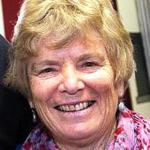
How many times have we heard that question in our Covid 19 world? Often, it’s used in the context of personal freedom – individuals wanting to be free to not wear a mask, not be vaccinated, go where they choose, associate with whom they want to. It’s all in the name of human rights.
It’s also being voiced in the context of a NZ resident being able to come home from overseas, and if they aren’t able to do so, because of a lack of a place in the MIQ facility, then their right to come home is being denied. (Currently this situation is being considered from a legal point of view.)
It’s also apparent in the conversation held with a woman who was very concerned about her personal autonomy, and whether or not her freedom to choose was being compromised. It seemed that her understanding of such autonomy was that it was an absolute – everything else had to fit around that.
Are our human rights paramount? Should our freedom to choose prevail over everything else?
Some background
The notion of human rights is essentially a Christian one. The value that is placed on each and every human life, with each person made in the image of God, shows that a human being is of priceless worth. The obvious consequence then is that no human being should be abused, maltreated, denied the basics of human life, denied an education, health treatment, citizenship, justice, and so on. The ideal of human rights is promoted by the UN. ‘Human rights for all’ has led to many programmes, campaigns and laws which seek to make life fairer for many. – Think of the abolition of slavery, the campaigns for civil rights in the US, those working against sex trafficking today, and equal pay for all, regardless of gender, and so on. There are many more, often hugely important.
So, what is the problem? Surely each of these consequences of the promotion of human rights is necessary in a just and fair society, whether this is a Christian notion or not.
When human rights clash…
The problem emerges when the exercise of my human right is regarded as an absolute, and it clashes with the exercise of someone else’s human right.
I may choose not to wear a mask in public but if I am spreading Covid 19 in doing so, then I am potentially compromising someone else’s health.
If I refuse to be vaccinated against Covid 19, and become sick and need hospital treatment, then by taking up a bed I am possibly denying someone else life-saving treatment. (It’s the unvaccinated who are currently filling more than 90% of beds in ICU units in US hospitals, and who are dying.)
If I say ‘it’s my body, my life’, and go ahead and have an abortion, I am denying life to another potential human being. (And usually involves medical staff participating in the abortion process.)
If I say I want to choose when to end my life and ask a doctor to carry out my request, I am wanting that doctor to step aside from their pledge to work to save life, not destroy it. (Yes, there are doctors willing to do that, but that doesn’t take away from the principle that the exercise of my choice affects others.)
Yes, we are individuals, but we live in a community
Centuries ago, John Donne wrote in a poem that ‘no man is an island’. That quote recently surfaced in an article which outlined some of the effects of people’s choices not to be vaccinated against Covid 19. The article writer went so far as to say that the unvaccinated were holding the vaccinated to ransom, by keeping the country in lockdown, thereby affecting the opening of our borders and the opening up of businesses.
The notion of human rights may derive from Christian values, but it is not the only value that does. It is also deeply Christian to deny ourselves for the sake of others, to work towards what is best for the common good, to give to and to serve others where needed. In Paul’s letters, all of the instructions he gives are not addressed to individuals per se – he is writing to a community, and the ‘you’ he writes to is a plural ‘you’, whereas in our individualistic West we may think he is writing to one person.
In following Christ, Christians are called to see the ourselves, in relation to God, but also to relate to others, and see them as they are seen by God.

Liz Hay rejoices in living in a beautiful part of God’s creation in a high country mountain basin; and she also rejoices in hearing stories of God at work in people’s lives. One of her favourite activities is reading fascinating biographies that illustrate the wonderful ways God works uniquely with each person.